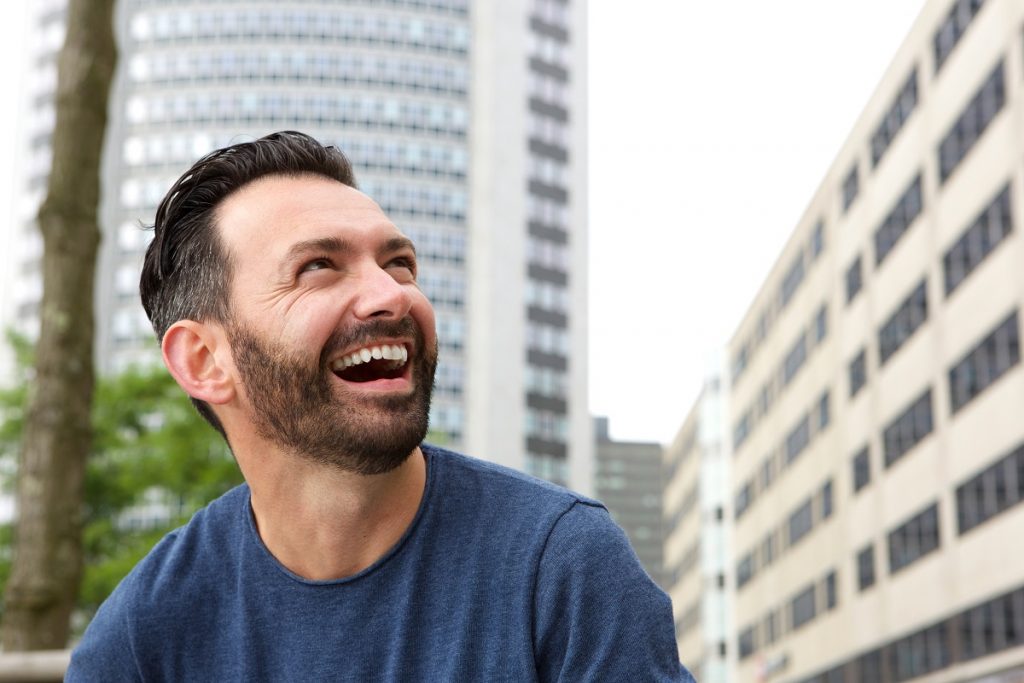Since ancient times, great thinkers and philosophers have pondered the meaning of happiness. Modern philosophers and psychologists have continued to research and contribute studies towards happiness. As a relatively new topic in the field of psychology, happiness is defined by the Webster’s dictionary as “a state of well-being characterized by emotions from contentment to intense joy” and “a pleasurable and satisfying experience.”
The Difference Between Living and Surviving
According to Maslow’s Hierarchy of Needs, one must secure physiological and security needs before pursuing wants and needs above the pyramid. In other words, happiness cannot be achieved if you are struggling and focus solely on survival. A person may be asking themselves how fulfilled they are in life while worrying about medical care, food, shelter and life expectancy.
Happiness cannot be fulfilled while suffering from hunger and loneliness. Once the two basic needs have been met, people can start thinking about the non-physiological and focus more on their development and self-expression. One might ask, if these needs are met with the help of money or wealth, does that mean wealth equates to happiness? Not necessarily.
Money and Happiness
It makes sense that people who escape poverty and live a more comfortable life will live a somewhat happier life, acquiring more, but with the price of diminishing returns. This means that people become less content and want to settle for something better. A traveller may eventually want to own a private jet instead of taking an airplane, or own the latest smartphone out in the market. While these are good goals, they sacrifice time for personal relationships with others and bring little emotional contentment. Owning more material goods did not make the average American any happier.
While material goods, physical attractiveness, and money may bring momentary joy, they do not correlate very well with happiness. Traits that have a strong connection to happiness include energy and self-confidence, intrinsic traits as well as “wanting what you have and having what you want.”

Free Will and Choice
The ability to choose and have options on the table is better than having to choose only one, whatever that may be. People feeling the freedom of choice tend to be happier, gaining control of what they want. The problem is, choice and options also present their own drawbacks. When people make a choice, they have a decision to satisfy a need (becoming thirsty) or maximizing options to ensure the best choice possible was made (ordering an expensive beverage).
Another example is buying a house, with more than five options available, you become overwhelmed and want to choose carefully and correctly. Basically, more options may lead to higher expectations compared to having limited options. Developing independent thinking and driving freedom for a more positive outcome can lead to factors such as happiness.
Enjoying the Little Things
A study by Alice Isen, PhD from Cornell’s Art College, observed how happiness can come in small, simple doses. These are when you find a dollar on the street, receive an unexpected surprise or praise from your boss. Energy from these little things enables people to be more generous, friendly, and more flexible and creative in problem-solving. Happiness can come from getting a relaxing massage to relieve stress, or a new greenhouse for your home, in the process of choosing your garden room designs to give you a serene, peaceful environment to think and relax.
Another study by Amy Wrzesniewski, PhD from New York University examines happiness in different workplaces. Even in the same office, people view their work differently, with some calling it living day to day, others as a career ladder, and the others as a calling. People who saw their work as a calling described their day-to-day duties in glowing terms and described their duties as needing skill. Those who saw their jobs as just jobs saw their duties as being simple and need little to no skill.
Happiness is such a broad topic that it cannot be covered focusing on only intrinsic aspects, but can also be observed in the workplace setting mentioned earlier and in day-to-day activities. Happiness can also be perceived differently by different people, cultures, and countries. Positive psychology and studying happiness can help patients be empowered and nurture their strengths while in therapy. This is just the beginning of the study of happiness, with more research being done about the study of what makes people happy.
